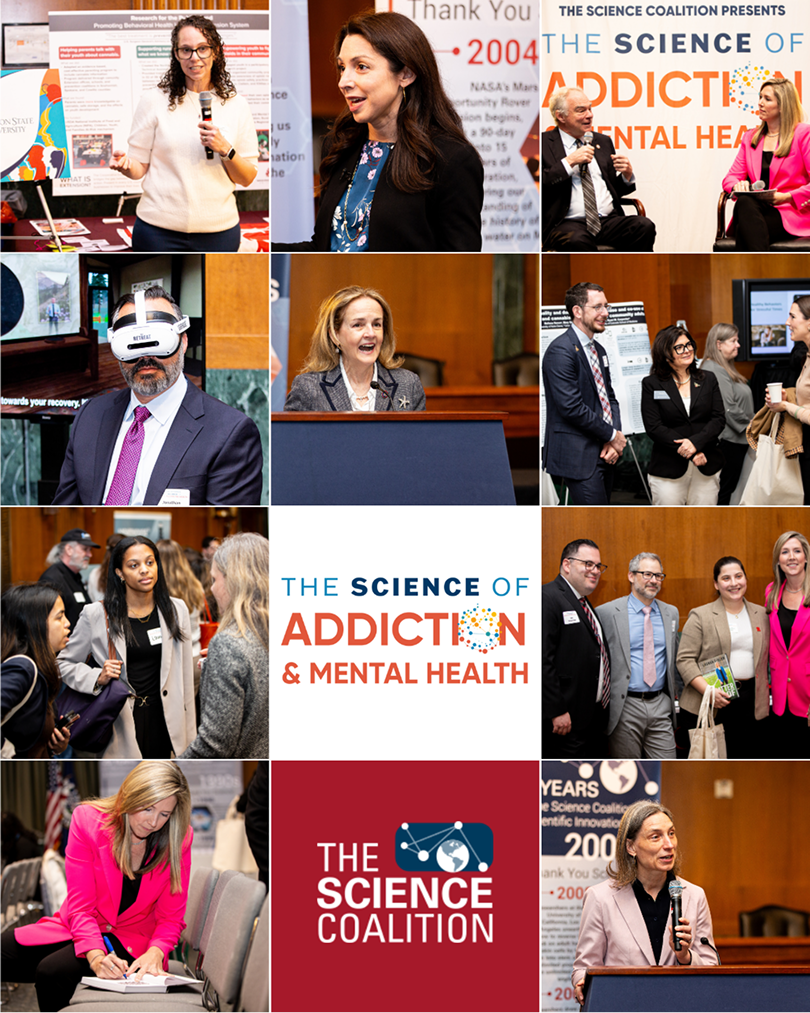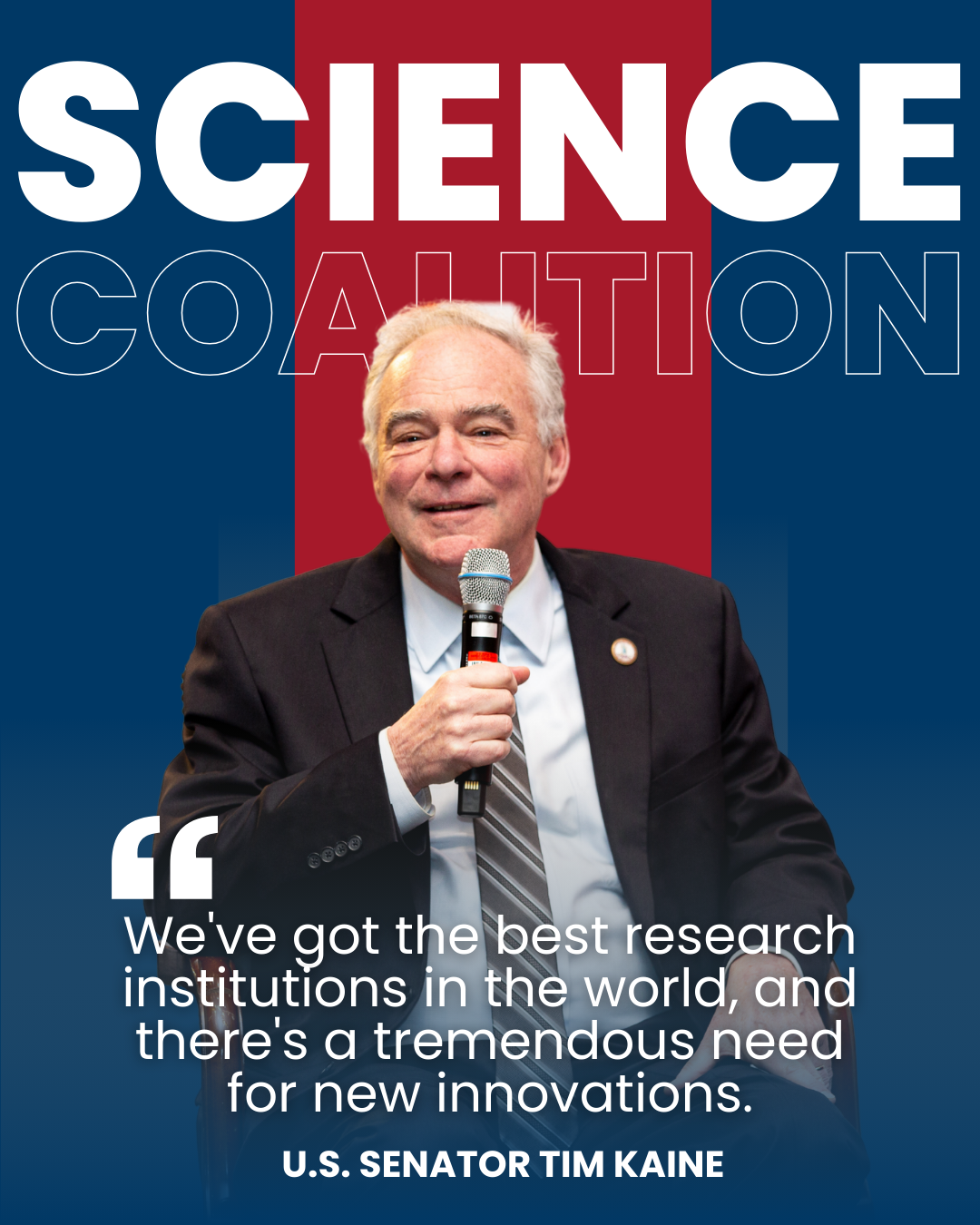 Last week, The Science Coalition hosted the Science of Addiction and Mental Health –convening leading academic researchers, Congressional staff, members of Congress, policy experts, and industry representatives to highlight groundbreaking mental health research powered by federal investments in basic science.
Last week, The Science Coalition hosted the Science of Addiction and Mental Health –convening leading academic researchers, Congressional staff, members of Congress, policy experts, and industry representatives to highlight groundbreaking mental health research powered by federal investments in basic science.
The event featured a compelling conversation between ESPN’s Lauren Sisler and U.S. Senator Tim Kaine (D-VA), who shared personal insights and underscored the bipartisan commitment to advancing solutions to America’s mental health and addiction crisis. Senator Kaine stressed that maintaining robust federal funding for basic scientific research is essential, calling such investments “lifesavers.”
U.S. Representatives Madeleine Dean (D-PA–4) and Maxine Dexter (D-OR–3) delivered remarks emphasizing the urgency of increasing federal support for research efforts that yield effective solutions to the current epidemic. Congresswoman Dean highlighted the devastating toll of the overdose crisis, with 110,000 lives lost last year alone. Congresswoman Dexter pledged her support for federally funded scientific research, saying she would: “… fight to make sure that [universities] continue to get the resources that [they] need –and what I’ve seen today gives me hope.”
Eleven TSC member institutions showcased their innovative projects and cutting-research in the mental health and addiction field. Participating universities included Columbia University, Johns Hopkins University, Northeastern University, The Ohio State University, Old Dominion University, Penn State University, Rutgers University, University of Notre Dame, University of Oregon, Virginia Commonwealth University (VCU), and Washington State University.
Among the highlights was VCU’s virtual reality therapy program, developed in partnership with Indivior and currently in use at the U.S. Department of Veterans Affairs. These institutions exemplify how federal research investments drive novel and impactful treatment solutionsfor patients across the country.




